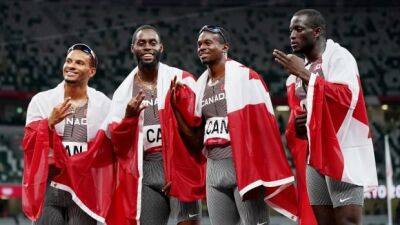Reconciliation through sport inspires Indigenous-led bid to bring the 2030 Olympics, Paralympics to B.C.
The Squamish word Chen Chen Stway means to hold each other and lift each other up. Tewanee Joseph said it also represents "the whole thrust" of Canada's Indigenous-led bid to bring the 2030 Olympics and Paralympics to B.C.
Joseph, a member of the Squamish Nation, first heard the idea last summer at the ceremony where Marnie McBean, Canada's chef de mission for Tokyo 2020, was gifted the drum she carried everywhere at those Games. He was approached by Canadian Olympic Committee president Tricia Smith.
"What immediately flashed into my mind was that for over 100 years we've been wanting — Indigenous peoples — we wanted to be at the same table as everyone else with an equal voice," Joseph, the COC's head of Indigenous inclusion and partnerships, said in an interview with CBC Sports.
"And when she mentioned that this could be an Indigenous-led process, that for me could be something that could help change and transform our country in a way that I've never seen before."
Joseph now occupies a seat at one of those tables as a core member of the team attempting to bring the 2030 Winter Olympics and Paralympics to British Columbia.
The process begins in earnest this week as delegates from the International Olympic Committee arrived in B.C. Monday to meet with the group in an initial exploration of what a bid might entail. Other potential bidders include another two previous Winter Olympic hosts — Sapporo, Japan (1972), and Salt Lake City, U.S., (2002) — and a joint effort from Spain, France and Andorra.
WATCH | The story of McBean's drum, from Canada to Tokyo:
For 2030, the hope is that instead of sending a drum across the world, the world will gather in B.C. to see reconciliation in action.
"For those leaders in the [four








